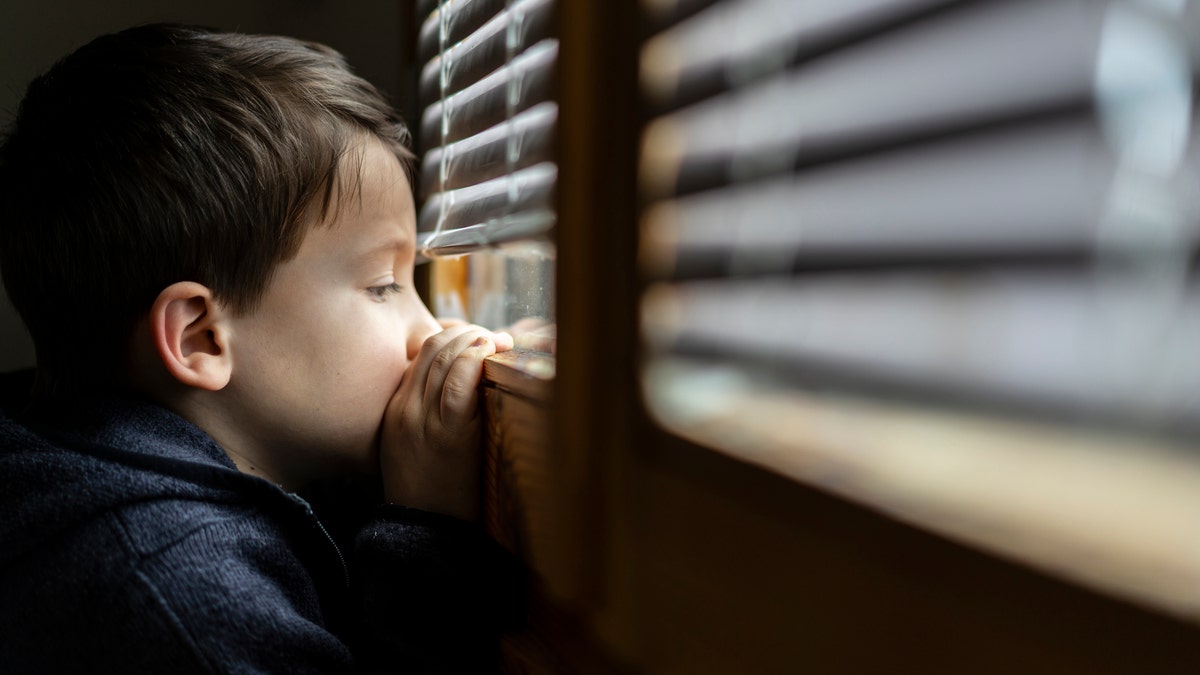Mask mandate is the way to stop coronavirus and rebuild economy: Biden
Joe Biden urges Congress to pass coronavirus relief bill; research fellow at The Heritage Foundation Joel Griffith with reaction.
Do coronavirus lockdowns affect children’s mental health?
COVID-19 is again surging in the U.S., with the nation on Sunday surpassing 11 million cases. The increase has led officials in some states, such as Michigan and California, to impose another round of lockdowns in an effort to curb virus spread.

The coronavirus pandemic has affected the mental health of American youth. A recent CDC found that mental health-related emergency department visits among children 18 and younger have increased this year. (iStock)
Effects on mental health are just one of the ways the coronavirus has impacted Americans. The first wave of lockdowns in the spring took a toll on the mental health of many, with suicidal thoughts in U.S. adults nearly doubling in June, according to a report from the Centers for Disease Control and Prevention (CDC). The 18-24 age group was one of the most affected, with some 25% reporting having suicidal thoughts.
The authors at the time pointed to social isolation, unemployment, financial concerns, and a lack of school structure as possible stressors for many in the age of coronavirus.
WHEN WILL THE MODERNA AND PFIZER VACCINES BE AVAILABLE?
When pushing back on Michigan Gov. Gretchen Whitmer’s decision to temporarily halt in-person learning at high schools and colleges in the state, Dr. Scott Atlas, President Trump’s coronavirus adviser, told Martha MacCallum, the host of "The Story with Martha MacCallum," on Monday night that he “doesn’t agree” with the move, citing possible mental health effects as a top concern.
“I don’t want to see the figure that one in four Americans, college students, age 18-24, thought of killing themselves in June because of the lockdown,” he said when referring to the aforementioned CDC report. (Atlas also noted that lockdowns are the “upspoken tragedy” among the elderly.)
Young adults aside, the pandemic has also affected the mental health of even younger Americans, with a more recent CDC report, published Nov. 13, finding that mental health-related emergency department visits among children 18 and younger have increased this year.
These emergency department visits — which are “are often the first point of care for children’s mental health emergencies,” per the CDC — began increasing in April and remaining elevated through October, the federal agency found.
CORONAVIRUS IMPACTING NATION'S MENTAL HEALTH, PSYCHOLOGISTS WARN
“Compared with 2019, the proportion of mental health-related visits for children aged 5–11 and 12–17 years increased [by] approximately 24% and 31%, respectively,” the CDC said in the report when noting that “monitoring indicators of children’s mental health, promoting coping and resilience, and expanding access to services to support children’s mental health are critical during the COVID-19 pandemic.”
“We need to recognize and address the impact of lockdowns and school closures on children's mental health,” Dr. John Whyte, the chief medical officer of the health care website WebMD, told Fox News in an email.
“Many parents are reporting behavioral issues that previously their children had not exhibited. This is most likely a result of the loneliness, anxiety and anger that many children are experiencing,” he continued, noting that some studies have shown an increase in sleep disturbances in children since the start of the pandemic.
“Kids often have more difficulty than adults in expressing their emotions and that's why we are seeing these physical manifestations related to a decrease in kids' mental wellness,” he added.
“The vast majority of youth will be resilient in the face of even severe stress or trauma,” Dr. Tali Raviv, the associate director of the Center for Childhood Resilience at the Ann & Robert H. Lurie Children’s Hospital of Chicago, previously told Fox News when discussing the signs a child may be mentally distressed and how to help them. “However, there are some children that may experience some lasting mental health effects. This becomes more likely if they have experienced a direct threat to their own safety (such as not having enough food or stable shelter, being very ill themselves, or seeing a loved one who is very ill) or experience a death or loss due to the coronavirus.”
CLICK HERE FOR FULL CORONAVIRUS COVERAGE
“Children with pre-existing mental health problems are also at higher risk for more lasting mental health concerns,” she added.
Raviv recommended ensuring physical and emotional safety, building and maintaining healthy relationships, and supporting and teaching skills for coping and emotion regulation as key ways to help children cope during these uncertain times.
“Parents should be observing their child’s behavior and noticing changes so that they can support their coping,” she advised.








































